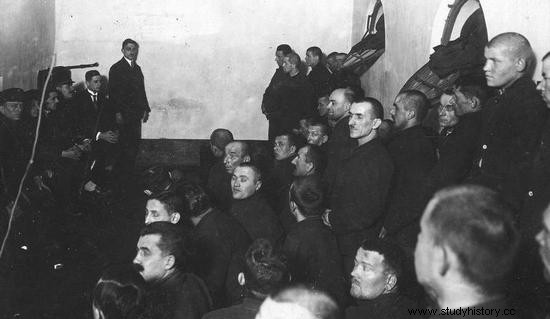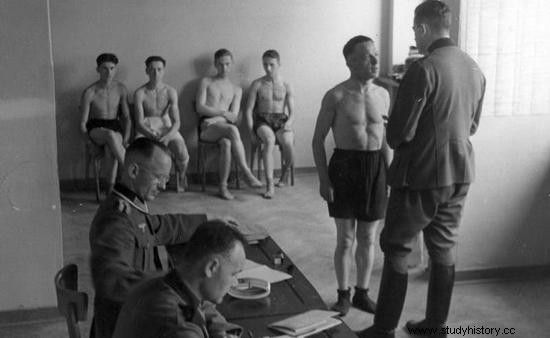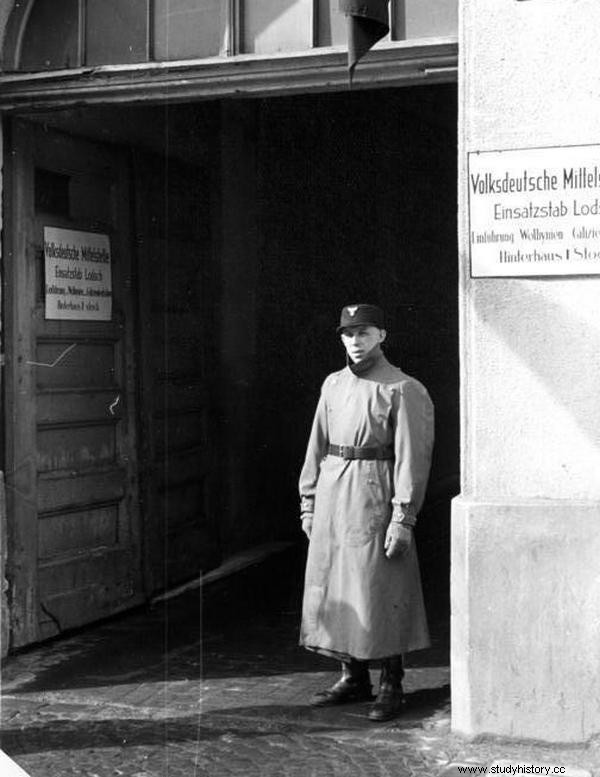Bombings, executions of criminals and blowing up trains. These are the most spectacular methods used by the Home Army in the fight against the Germans. However, all of them were associated with bloody repression. Being aware of this, the Polish underground decided to use much more ... subtle methods.
In order not to endanger the civilian population, the Home Army began to develop methods of subversion unknown to the art of war. The task was not easy. On the one hand, it was necessary to inflict painful losses on the German army. On the other hand, everything had to be kept secret, so that no trace would lead to Poles, much less to the underground state.
Lice and venereal diseases in the service of the Home Army
One of the most effective methods was to infect the Nazis with various more or less nasty diseases. Jan Karski in his legendary book "Secret State" described this practice on the example of a certain Home Army - also Jan. According to the famous courier's account:
Wore [he] with him an astonishing amount of various lethal germs. He had a nice fancy box in which he kept lice infected with microbes - microbes that transmit typhus and other diseases.

The Home Army even used lice to fight the occupant (photo Maksim; license CC ASA 3.0).
Okay, but how do you make use of this deadly "biological weapon"? After all, there was always a risk that the parasites released in a public place could also infect Poles. Our Home Avenger was fully aware of this and left nothing to chance. Thanks to his excellent knowledge of the German language - he came from Greater Poland - he could freely impersonate a representative of the "master race" and without any obstacles:
visited pubs, talked to and drank with German soldiers. Drinking was one of Jan's favorite pastimes, which did not, however, prevent him from carrying out his tasks. At the right moment he was throwing a louse infected with typhus by the collar of a German companion. Throwing germs into drinks .
The "walking germ" - as colleagues from the underground called the former trader alive - was by no means limited to spreading diseases with the help of annoying insects. He also exploited male weakness towards female charms for his purposes, acquainting Germans with specially selected girls suffering from venereal diseases .
As you can see, no Nazi who stood in his way could feel safe. And most importantly, John's devastatingly successful activities in no way put civilians at risk of retaliation.
Criminals in the fight against the invader
The underground did not hesitate to use the services of criminals who, even if caught, would not be suspected of collaborating with the Home Army. As Jan Karski explained in his book:
In 1939, we released a large number of criminals from prisons, encouraged them to steal and murder, provided that only the Germans fell victim to them > . Our authorities kept lists of the names of these criminals, their records along with the files, in order to regain supervision over them after the war. Of course, they were promised to reduce their sentences according to their success in the actions against Germany.

In 1939, the Polish underground led to the release of many criminals from prisons. They were promised that their sentences would be shortened after the war if they robbed and murdered Germans.
It should be emphasized that this method turned out to be very effective, and the criminals, grateful for the trust they had been shown, did not harm the Poles during the occupation, if the Home Army data was to be believed! Moreover, many of them could have been entrusted with some of the bloodier tasks of the underground military operation.
The Warsaw underworld also contributed to the fight against the occupant in other fields. We can find out about it by reading the memoirs of Alfred Zajdorf, who was thrown into this environment by his fate.
Due to his inborn predispositions - long and agile fingers - then teenage Alfred found himself in a gang of pickpockets, which specialized in robbing the Germans. Thanks to their activities, the underground could count on a constant injection of cash and German documents which were even more valuable prey.
Send folksdojcza to the front
The Polish underground targeted not only the occupiers who came from the Reich, but also the Volksdeutsche. Especially those from the General Government were in many respects much worse than the Germans themselves. They knew the local realities very well and thus posed a deadly threat to AK members . Most often, however, it was not possible to simply eliminate them, because it would be tantamount to the death of dozens of innocent hostages.
That is why the members of the underground came up with a simple as well as ingenious way of getting rid of overzealous Volksdeans - they sent them in boots! This method was called "voluntary enlistment" and consisted of writing fake letters to the authorities in Berlin asking them to join the Wehrmacht.

Medical examination of Volksdeutsche army volunteers. I wonder how many of them were actually volunteers, and how many were sent to the front by the Home Army?
Of course, each of such "requests" was signed with the name of an unaware Volksdealer. A sample letter - quoted by Jan Karski - looked like this:
The Führer made me feel that I belonged to the German nation. Currently, I serve my motherland as a farmer (or merchant, policeman, etc.). I can no longer wait passively when my German brothers are heroically dying. I would like to take up service in the victorious German army, and thus take advantage of the privilege of being immediately incorporated into the Wehrmacht ... I would consider it a great honor to serve in the German army and I hope that my patriotism will be quickly appreciated and that I will be sent to the front .

Lodz Volksdeutsche, maybe he also found himself a "volunteer" in the Wehrmacht? (source:Bundesarchiv; lic. CC-BY-SA).
As you can easily guess, the German army, struggling with increasing staffing problems, welcomed such "volunteers" with open arms. It was quite another matter for the interested parties, who, out of the blue, one day received a summons to the army.
But there was nothing they could do about it. After all, the letters were far away in Berlin, and they themselves, by withdrawing their request, would show disloyalty to the "Thousand-year-old" Reich. Thus, with the help of paper and pen, the Polish underground was bloodlessly getting rid of the threat.
